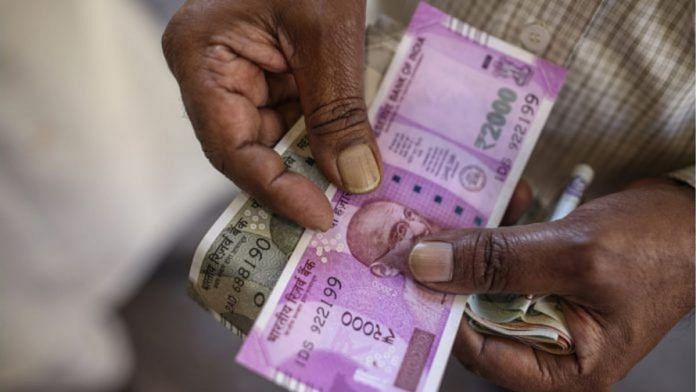New Delhi: The central government on Wednesday asked various ministries and departments to restrict expenses to a maximum of 20 per cent of their annual budgetary allocation in the September quarter as part of austerity measures amid the coronavirus pandemic.
However, the restrictions on expenditure for the second quarter (July-September period) of the current fiscal would not be applicable for select ministries and departments, including health, agriculture, fertilisers, pharmaceuticals and food.
The ministries of housing and urban affairs, drinking water, railways, road transport, MSME and rural development too have been exempted from the 20 per cent expenditure restrictions.
All other ministries and departments “will require to restrict overall expenditure within 20 per cent of BE 2021-22 in Quarter 2 (July to September 2021).” according to an office memorandum issued by the Department of Economic Affairs under the Ministry of Finance.
The curbs would also not be applicable for activities such as pension payments, interest payments and transfer of funds to states.
Keeping in view “the evolving situation arising out of COVID-19 and anticipated cash position of the government, it is felt essential to regulate quarterly expenditure plan/ monthly expenditure plan of specific ministries and departments in quarter 2,” the memorandum said.
Items of large expenditure would be governed by the guidelines issued by the Budget Division under the Department of Economic Affairs dated August 21, 2017, it added.
These directions have been issued with the approval of the Expenditure Secretary, who is also the Finance Secretary.
“Ministries or departments are advised to observe the guidelines strictly and regulate the expenditure accordingly in the current fiscal. Any deviation from these guidelines would require prior approval of the Ministry of Finance,” the memorandum said.
While processing applications for relaxation of guidelines, the memorandum said that priority will be given to relaxations arising on account of an increase in capital expenditure.
On Tuesday, Finance Minister Nirmala Sitharaman exhorted ministries to aim to achieve more than their capital expenditure (CAPEX) targets for this fiscal, highlighting that enhanced spending will play a critical role in revitalising the economy post-pandemic.
Union Budget for 2021-22 has provided a capital outlay of Rs 5.54 lakh crore, an increase of 34.5 per cent over the Budget Estimate (BE) of 2020-21.
Meanwhile, India’s total debt rose by 6.36 per cent to Rs 116.21 lakh crore at the end of March 2021. Total liabilities have reached almost 59 per cent of India’s GDP as economic contraction forced the government to borrow record amounts to meet the revenue shortfall.
The total liabilities (including liabilities under the ‘Public Account’) of the government stood at Rs 109.26 lakh crore at the end of December 2020.
Public debt accounted for 88.10 per cent of the total outstanding liabilities at the end of March 2021.
Nearly 29.33 per cent of the outstanding dated securities had a residual maturity of fewer than five years.
In the fourth quarter of last fiscal (January-March period), the central government issued dated securities worth Rs 3,20,349 crore as against Rs 76,000 crore in the year-ago period while repayments were at Rs 29,145 crore. –PTI
Also read: Modi govt keeps interest rates on small savings schemes unchanged for 2nd quarter of 2021-22



